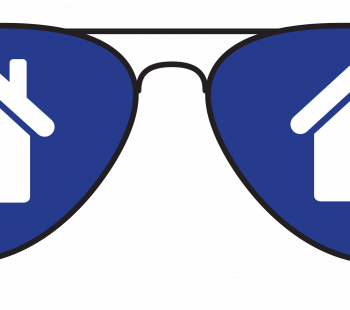Direction versus Destination
Knowing which way you are headed is far more important than knowing where you will end up and the journey is often more valuable than the destination to which it leads.
How many times have you heard someone say some variation of the following, “I just don’t know what I should do for a career, or what I should choose for a major, or what my next move should be?”
That statement almost always leads to inactivity or, at a minimum; it creates a reason for that person to not actively work towards a defined goal or objective. “How can I work toward something if I don’t even know what that something is?”
The answer is to not place so much emphasis on the end result. It is always important to set goals and then to work hard to achieve them, but the absence of a specifically defined end result should not absolve you from taking any action at all.
There are many factors that can line up against you when you are contemplating the many things in your life that require a long term plan. Sometimes it is the number of variables that may or may not occur. Sometimes it is the length of time involved before you would reach a longer term goal. Whatever your factors are, it can be a daunting task to go through the process of trying to connect all of the dots that represent the checkpoints of your life.
Even if you find long range planning and goal setting to be a challenge, daily forward progress must still be an essential aspect of your routine and you can achieve it without necessarily knowing exactly where it leads you. As an example, you can learn more about your current job and become more knowledgeable in that role without knowing if it is the job that you would like to have for the rest of your working career.
Eating right and exercising regularly will always be a step in the right direction even if you do not have a specific weight loss or training related goal. Donating your time or money to a worthwhile charity is a great gesture even if you do not ultimately stay involved with that charity.
If you are actively engaged in moving forward, you will find that you create more opportunities for growth and personal expansion even if you haven’t determined your ultimate destination or a more specific purpose.
Conversely, allowing yourself to stagnate in your job because you haven’t decided if you are going to make a career out of it is a disservice to your company as well as yourself. When you don’t move forward, the organization you work for will also suffer from your inactivity.
Setting a direction is also easier than determining a destination. In many ways, direction and destination also represent the difference between the short term and the long term. For most of us, the short term is much easier to see and define. As an example, I may not know where I would like to be in five years, but I know that I need to get that report done today.
Short term progress is often times easier to measure and see than long term progress. One huge exception to this is parenting. Short term progress is often impossible to see when you are raising your children, and many times, you may have to wait until your children are young adults before you can clearly see that your work has paid off.
Even in that example, however, the parents have made good parenting a matter of personal importance and they are committed to that direction well before they know how well their decisions and parenting style will play out.
This is also an example of the value of the journey. If, as a parent, you only ever think about and focus on the day your child leaves for college, you are going to miss an awful lot of memories along the way. While the end result represents what you mutually work toward, the milestones and achievements you reach along the way create a lifetime of memories. The joy of that time together and the experiences that you enjoy with your children along the way are what form the bond and the basis for your relationship going forward.
Getting that promotion at work is great, but it is the work that you do along the way that really helps you to advance as a person and round you out as an employee.
Life is full of uncertainty and it is easy to convince yourself that many things are beyond your influence or control. When you set a forward direction, however, you gain the kind of peace of mind that is only known to those who are following their own plan. When you take the added step of tracking results and paying attention to your own personal journey, you virtually assure yourself of gaining value and insight that would not be possible to understand were you to only focus on your destination.
Just remember that you can take a step in the right direction without exactly knowing where you are headed, but it is nearly impossible to achieve a desired result without having any idea of the steps that you took to get there.
Scott Arney
Chief Executive Officer
Chicago Patrolmen’s Federal Credit Union







